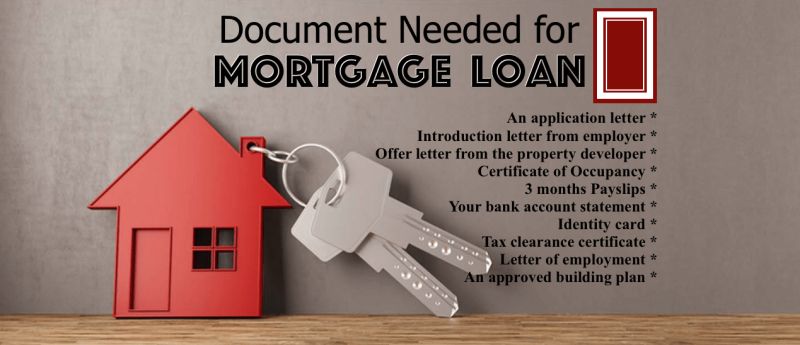List of Documents Required for Mortgage Loan Approval
Applying for a mortgage can be both exciting and daunting. Whether it’s your first time buying a home or you’re refinancing an existing loan, being well-prepared with the necessary documentation can make the process smoother. Mortgage lenders require a variety of documents to ensure that borrowers are financially capable of repaying the loan.
In this comprehensive guide, we’ll outline the complete list of documents required for mortgage loan approval, helping you streamline the process and boost your chances of securing the loan you need.
Personal Identification and Information
One of the primary steps in applying for a loan on mortgage is to provide personal identification documents. Lenders need to verify your identity and ensure you’re legally eligible to enter into a loan agreement. Here are the key documents you will need:
- Government-Issued ID: This can be a driver’s license, passport, or state ID. Ensure that the ID is current and valid.
- Social Security Number (SSN): Your SSN is crucial for credit checks and verifying your financial history.
- Proof of Residency: Utility bills, lease agreements, or any official document with your name and address can serve as proof of residency.
Income Verification
Lenders want to be confident in your ability to repay the loan, so verifying your income is essential. Here’s a list of documents required for mortgage loan income verification:
- Pay Stubs: Usually, lenders request your most recent pay stubs (typically for the past two to three months). These documents show your current income and employment status.
- Tax Returns: Provide copies of your federal income tax returns for the past two years. This helps lenders assess your long-term financial stability.
- W-2 Forms: These forms summarize your annual earnings from your employer and are crucial for confirming your income over the past two years.
- Profit and Loss Statements: If you’re self-employed, lenders will need your profit and loss statements for the past one to two years to gauge your business’s profitability.
- Bank Statements: Provide statements for all your bank accounts for the past two to three months. Lenders will review your account balances, deposits, and withdrawals to ensure you’ve managed your finances well.
Employment Verification
In addition to income verification, lenders need proof of stable and ongoing employment. The following documents are typically required:
- Employment Verification Letter: A letter from your employer verifying your employment status, position, and salary.
- Work History: Some lenders may require a detailed work history for the past two to five years to ensure long-term employment stability.
- Proof of Additional Income: If you have any additional sources of income, such as rental properties or investments, provide the necessary documentation, such as leases or investment statements.
Credit History
Your credit score and history are critical factors in mortgage loan approval. Be prepared to provide the following:
- Credit Report: Lenders will run a credit check, but it’s a good idea to obtain a copy of your credit report ahead of time to address any potential issues.
- Explanation of Credit Issues: If your credit report shows late payments, defaults, or other issues, provide written explanations and supporting documents to help clarify the circumstances.
Assets and Liabilities
Lenders need a clear picture of your financial health beyond your income. Documentation of your assets and liabilities includes:
- Bank Account Statements: Provide statements for checking, savings, and other accounts.
- Investment Account Statements: Include statements for any investments, such as stocks, bonds, and retirement accounts.
- Property Deeds: If you own additional properties, include copies of the property deeds.
- Debt Statements: Provide documentation for all outstanding debts, including credit cards, auto loans, student loans, and other liabilities.
Down Payment and Closing Costs
To secure a loan on mortgage, you need to demonstrate that you have sufficient funds for the down payment and closing costs. Be prepared to provide:
- Proof of Down Payment Funds: Bank statements showing the funds you’ll use for the down payment.
- Gift Letters: If part of your down payment comes from a gift, a signed letter from the donor stating that the funds are a gift and not a
Property Information
Lenders need detailed information about the property you plan to purchase. Make sure to gather the following documents:
- Purchase Agreement: A signed purchase agreement between you and the seller.
- Property Appraisal: Lenders typically order a property appraisal to determine its market value.
- Homeowner’s Insurance: Proof that you have homeowner’s insurance to protect the property.
Miscellaneous
Depending on your unique financial situation, additional documents that may be required include:
- Divorce Decree: If applicable, provide your divorce decree detailing any alimony or child support obligations.
- Bankruptcy Documents: If you have filed for bankruptcy, provide all relevant documentation, including discharge papers.
- Rent Payment History: If you were renting prior to buying, documentation showing timely rent payments can be beneficial.
Final Steps
Once you’ve gathered all the required documentation, you’ll submit them to your lender. Be prepared for follow-up questions or requests for additional information. Staying organized and responsive can significantly expedite the approval process.
In conclusion, understanding the documents required for mortgage loan approval can help you navigate the application process with confidence. Being thorough and proactive in assembling these documents will not only streamline your mortgage application but also enhance your chances of securing favorable loan terms. Good luck on your journey to homeownership!

